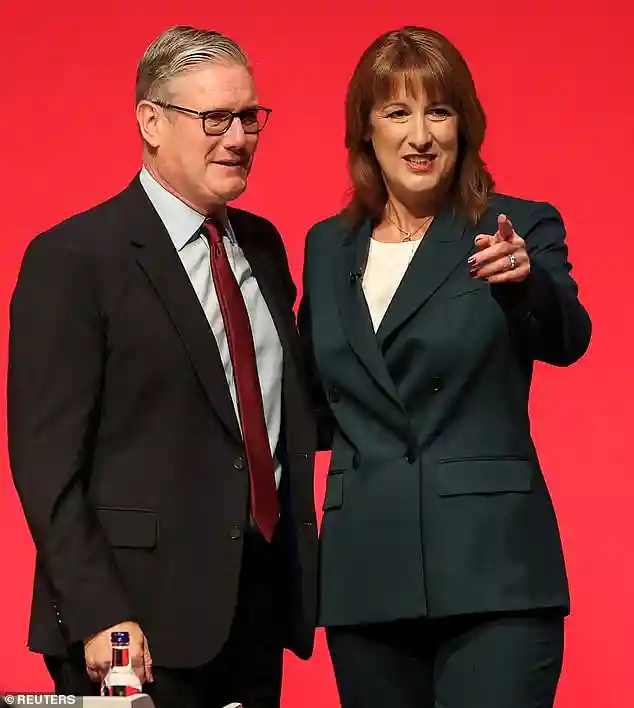Britons are feeling the pinch — and they’re not shy about admitting it.
A shocking new poll reveals that zero per cent of the public think the economy is in a “very good state,” while only four per cent describe it as “fairly good.”
That’s roughly the same number who still hold a positive view of Prince Andrew.
Meanwhile, 44 per cent say the economy is “fairly bad” and 35 per cent call it “very bad.”
The picture is grim, and it’s particularly painful for Labour, a party that made economic competence the cornerstone of its pitch to voters.
Labour Leadership Faces Harsh Judgement
The YouGov survey also highlights dwindling faith in Labour’s economic management.
Only 1 per cent believe Rachel Reeves and Keir Starmer are doing “very well,” and just 13 per cent say they’re doing “fairly well.”
By contrast, a staggering 77 per cent rate them as doing “fairly” or “very badly.”
Even among last year’s Labour voters, more than twice as many now think the party is mishandling the economy.
These figures underline a harsh reality: Labour’s reputation for economic stewardship is in serious jeopardy.
Budget Chaos Adds to Uncertainty
The timing couldn’t be worse. The run-up to the upcoming Budget has been described as one of the most chaotic in recent memory.
The Chancellor hinted at the first rise in the basic income tax rate for half a century, only for the Treasury to reverse course days later amid a growing backlash.
Westminster insiders worry that the Chancellor could unveil another punishing tax measure when the Budget lands next week.
Shadow Chancellor Sir Mel Stride condemned the pre-Budget leaks and mixed messages, saying they are fuelling uncertainty and damaging the economy.
Tax Threshold Freeze Under Scrutiny
Labour’s own positions are under pressure too.
Sir Keir Starmer has not ruled out extending the freeze on income tax thresholds, despite last year’s warnings from Rachel Reeves that it would hurt working people and break the party’s manifesto promises.
Analysis by the Institute for Fiscal Studies warns that a two-year extension could cost basic rate taxpayers £405 a year and higher earners £1,129.
Over a million more people, including pensioners, could be dragged into the income tax system.
The stealth tax raid could raise around £8.5 billion — almost the same as the cost of scrapped welfare cuts and the planned lifting of the two-child benefit cap.
Political Clash in the Commons
In the Commons, clashes continued. Tory leader Kemi Badenoch pressed the Prime Minister on whether Labour will honor its pledge to end the freeze on thresholds.
The PM sidestepped, focusing on promises to protect the NHS and public services.
Badenoch described the uncertainty as causing “real anxiety” in the economy.
She said businesses are hesitating to hire, investment is stalling, and people are postponing major decisions.
“They are making it up as they go along.
Doesn’t the country deserve better than government by guesswork?” she added.
Business Leaders Sound Alarm Bells
The private sector is also nervous. Senior business figures warned that a repeat of last year’s tax raid could hit employers hard.
Paul Greenwood, UK chairman of ExxonMobil, highlighted the risks to the industrial base, citing the closure of a major ethylene plant and saying government policies are putting the UK economy in jeopardy.
Meanwhile, Ed Miliband’s controversial Net Zero agenda has raised further concerns about costs and competitiveness.
Chancellor’s Budget Plans
Despite criticism, the Chancellor promises action to tackle inflation and the cost of living in next week’s Budget.
Expected measures include a £150 reduction in energy bills through general taxation, a four per cent increase in the minimum wage, and similar hikes in benefit payments.
Labour MPs were also briefed on plans for a “mansion tax” — either an annual levy on high-value homes or higher council tax on properties in bands F, G, and H.
High Stakes for Leadership
The political stakes could not be higher. Allies warn that both the PM and Chancellor risk being ousted if the Budget fails to deliver.
With public confidence at historic lows, a misstep could have consequences that reach far beyond the Treasury.
Share on Facebook «||» Share on Twitter «||» Share on Reddit «||» Share on LinkedIn
